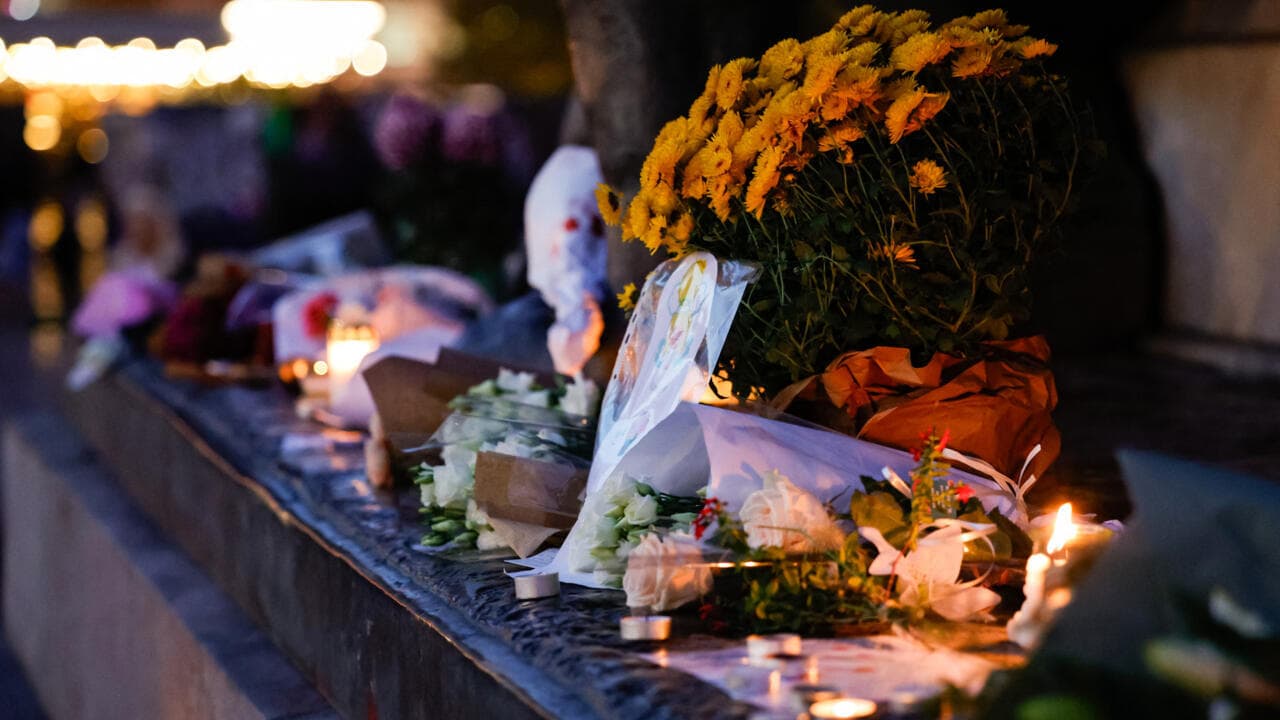Ten years on, survivors of the Paris attacks struggle to cope with the trauma as France prepares to pay tribute Thursday to the victims of the assaults that left more than 130 people dead and more than 400 injured.
“The 10th anniversary is here and emotions and tension are everywhere for us survivors,” said 39-year-old Arthur Denouveaux, president of victims’ association Life for Paris. “That kind of shields us from the world in a way, because we’re so focused on the grief and on remembering those who lost their lives.”
On November 13, 2015, nine Islamic State gunmen and suicide bombers struck within minutes of one another at several locations in the deadliest violence to hit France since World War II.
They targeted fans at the Stade de France stadium and café-goers, ending with a bloodbath in the Bataclan theatre that killed 90 people. Two survivors who later took their own lives as a result of the physical and mental trauma have also been recognised as victims.
Denouveaux was at the concert of the Californian rock band Eagles of Death Metal at the Bataclan. Since then, he has made a point of telling his story, speaking to the media and writing books to ensure what happened is not forgotten.
“The hardest part is November 14, when you have to get back to normal life somehow and the grief is still here, but the bond is a little more distant,” Denouveaux told The Associated Press.
At 9:47 p.m., three gunmen burst into the Bataclan, firing indiscriminately and killing 90 people.
Denouveaux escaped when he heard the first gunshots by crawling toward the nearest emergency exit.
“I remember crawling on top of bodies. I believe most of the people were pretending to be dead and were not dead, but still. And I remember a few faces — or at least a few facial expressions — of people who were necessarily dead because of the angle of the neck, because of the colour of the skin,” he said.
Out in the street, he helped bewildered members of Eagles of Death Metal get into a taxi.
A father of three girls aged 2, 4 and 6, Denouveaux said it took him a year and a lot of medication to overcome the most critical phases of post-traumatic stress disorder.
“But since 2017, I would say, I’ve had no panic attack, I’ve had nothing of that kind,” he said. “But I’m very cautious because I’m not sure you heal from PTSD.”
Thursday’s main ceremony is to take place at a newly created memorial garden near Paris City Hall, attended by French President Emmanuel Macron, Paris Mayor Anne Hidalgo, survivors and families of victims.
Macron will also lay wreaths at the sites of the attacks before the garden ceremony. Parisians are invited to place candles, flowers and written notes at Republic Plaza, and the Eiffel Tower will be lit in the colours of the French flag at night.
“The nation will gather to honour the memory of those who lost their lives, show its unwavering support for their loved ones, express its gratitude to all those who intervened that night, and reaffirm its ongoing commitment to the fight against terrorism,” Macron’s office said in a statement.
The new memorial garden, designed with the contributions of survivors and relatives of those who died in the attacks, evokes the six sites of the assaults with the names of the victims engraved on steles.
Denouveaux, who was involved from the beginning, said the project aims to create “a place that remembers the dead but also a place of life, a place that is beautiful, that is serene.”
The French football federation will honour the victims Thursday as France’s national team hosts Ukraine in a men’s World Cup qualifier. The match will take place at the Parc des Princes in Paris rather than the Stade de France in nearby Saint-Denis, with a minute’s silence before kickoff.
November 13, 2015, became a defining moment in France’s modern history, traumatising an entire nation and shattering its sense of security.
Survivors had to find a new path in life following the attacks, Denouveaux explained.
“When you survive a terrorist attack … you become disconnected from the rest of the world,” he said. “There are three mourning phases to go through: the mourning for those who died, the mourning for the person you were … and the mourning of the image people have of you.”
A months-long trial in 2021–2022 led to the conviction of the lone surviving member of the team that carried out the attacks, Salah Abdeslam, who was sentenced to life in prison without parole. The special terrorism court also convicted 19 other men involved.
“Ten years later, when I tell someone who doesn’t know, ‘Well, I was at the Bataclan,’ the person’s perception of me changes immediately,” Denouveaux said. “There’s the emotion they felt that day, but also, I think, the fear of wondering, ‘Is he OK? Can I talk to him about it? How do we do that?’ And that, of course, puts you out of phase.”

